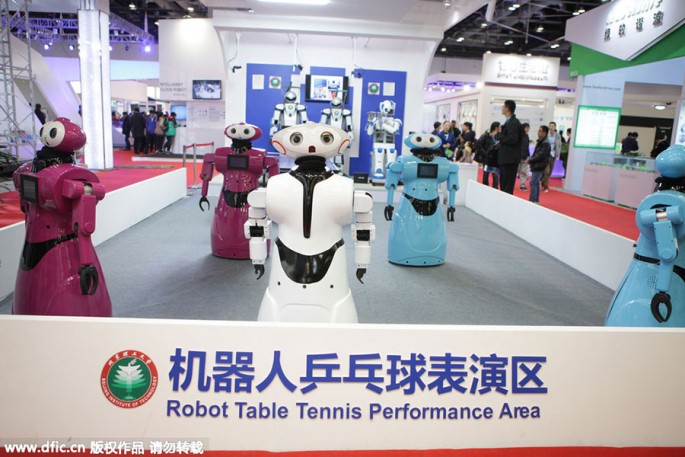Grappling against Asian peers whose domestic labor gets cheaper by the day, China is finding a solution to its slowing manufacturing sector by ramping up robotics.
With the approval of the Five-Year Plan in March, the country is looking to triple its annual robotics production in an effort to boost its manufacturing industry.
"The target is being pursued as the country upgrades its labor-intensive manufacturing with technological innovation," wrote China Daily.
About 100,000 robots are expected to be built by 2017, while shipments of service robots are pegged at 30 billion yuan ($4.6 billion) by 2020, said the Ministry of Industry and Information Technology.
The country is banking on robotics to solve increasing labor costs spurred in part by a graying population.
The rise of the robotics industry in China started in 2003, which saw 36,560 robot sales, or about one-fifth of global transactions. On the back of this, China has managed to elbow out Japan as the largest market for industrial robotics.
Upping its game, however, China is now encouraging companies to upgrade their technologies and adopt advanced machineries, including robots.
In 2015, Guangdong Province, which is home to huge factories and plants, pledged to splurge about $150 billion on industrial robots and new automation centers, according to the MIT Technology Review.
"The goal is to overtake Germany, Japan and the United States in terms of manufacturing sophistication by 2049, the 100th anniversary of the founding of the People's Republic of China," said the online publication.
To meet this, China-based suppliers need to use robots "by the millions," as well as produce them extensively. The government is likewise calling local makers to compete against bigger rivals.
"The ministry will encourage Chinese robot manufacturers to gain a bigger presence in the high-end market, an area currently controlled by overseas giants such as Fanuc Corp. from Japan and the multinational ABB Group based in Switzerland," said China Daily.



























